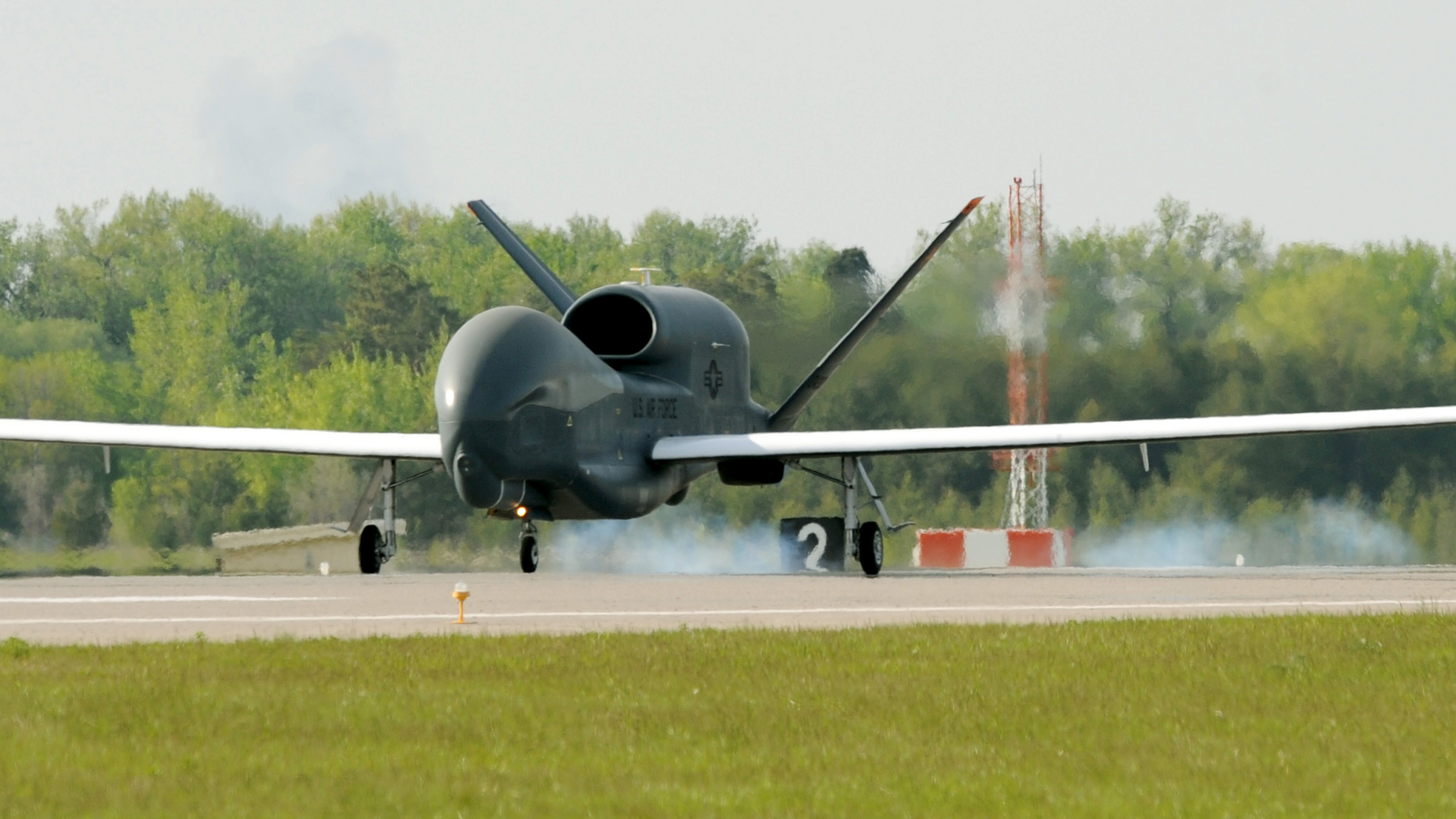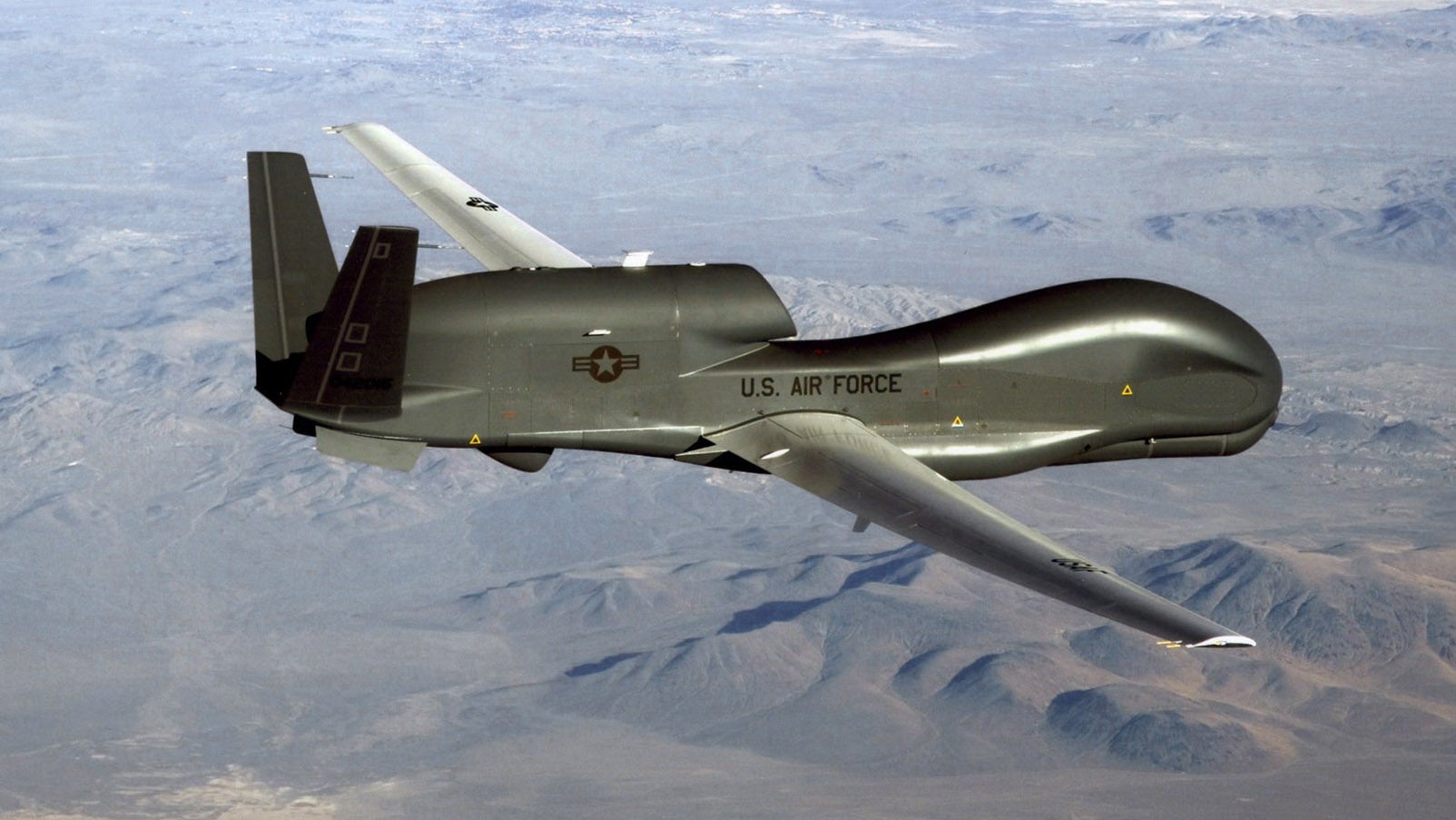The U.S. Air Force has lost one of its RQ-4 Global Hawk surveillance drones in an accident just outside Grand Forks Air Force Base, North Dakota. The unmanned aerial system crashed earlier today, with no injuries reported on the ground.
According to Air Force officials, the Global Hawk was returning from a sortie this morning when it came down in a field on the 2700 block of 27th Avenue Northeast, around 4 miles north of Grand Forks Air Force Base, at around 7:00 am local time. A fire on the ground was extinguished and work to recover the drone is reportedly ongoing, with Sheriff’s deputies, Air Force staff, and members of the North Dakota Highway Patrol at the scene of the incident.

With a military investigation into the cause of the accident already having begun, the Air Force has requested that the public avoid the area as much as possible. It’s worth noting, too, that this is not the first accident involving an Air Force RQ-4.
“[The] 319th Reconnaissance Wing has personnel on site and we anticipate recovery operations and the official investigation may take several weeks,” said Colonel Jeremy Fields, vice commander of the 319th Reconnaissance Wing. “I’d like to personally thank local law enforcement, Customs and Border Protection, and emergency services for their support on scene.”
Headquartered at Grand Forks Air Force Base, the 319th Reconnaissance Wing is responsible for the infrastructure and operational support for the 69th Reconnaissance Group’s RQ-4 mission. This, in turn, supports squadrons and detachments at different operating locations around the globe, including Andersen Air Force Base in Guam, Beale Air Force Base in California, and Sigonella in Italy.

The installation is also home to unmanned aircraft development and testing, with a separate facility being built to accommodate contractors for this mission. The regional airspace is especially well suited for unmanned operations.
We will continue to update this story as more details emerge.
Contact the author: thomas@thedrive.com
